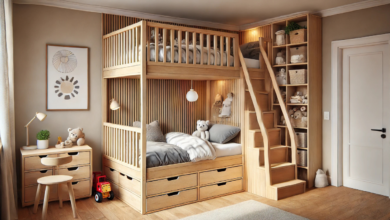Personalized Memory Support in Independent Living for Seniors

As seniors age, memory challenges can become part of daily life. But what if there was a way to stay independent while also getting the memory support needed to live well? That’s where personalized memory support in independent living comes in.
This type of care helps older adults stay safe, healthy, and happy without losing their freedom. In this blog post, you’ll discover how this approach works, why it matters, and how it helps seniors enjoy life while staying sharp and independent.
What Is Personalized Memory Support?
Personalized memory support is a type of care that focuses on the individual needs of each senior. Instead, the care is built around each person’s memory strengths, daily habits, and personal history.
This makes it easier for seniors to stay on track with tasks like remembering appointments, taking medicine, or keeping up with hobbies they love. The support is gentle and respectful, helping seniors feel confident rather than confused or left behind.
Why Memory Support Matters in Independent Living
Independent living is all about keeping freedom while having access to help when needed. Forgetting small things like turning off the stove or locking the door can create safety risks.
Personalized memory support helps prevent these problems by guiding seniors through their routines without taking away their independence. This kind of support also gives peace of mind to families, knowing their loved ones are in a safe and supportive place.
Daily Routines That Support the Mind
Good memory care often starts with simple daily routines. Things like regular mealtimes, daily walks, or planned social events give structure to the day.
Personalized memory support uses these routines to help seniors feel grounded. These routines don’t just help with memory-they also reduce stress and bring a sense of comfort.
Building a Supportive and Safe Environment
A safe space is key for seniors with memory concerns. This doesn’t just mean clean hallways and good lighting. It also means creating a calm place where seniors feel secure.
Personalized memory support includes things like labeled drawers, color-coded signs, or personal objects placed where they’re easy to see. These little touches help seniors move through their day without getting lost or confused.
Staying Connected and Engaged
Social connection is one of the best ways to keep the mind active. Personalized memory support often includes group activities, games, music, and art. These are more than just fun-they help the brain stay flexible and strong.
Seniors take part in activities that match their interests and abilities, and they feel more alive and involved. In some communities, like those offering trusted support in Pittsburgh, memory support is designed to help seniors stay active while feeling connected to others who care.
A Team That Understands Each Person
Behind every good memory support program is a caring team. Whether it’s a nurse, caregiver, or activity planner, they all work together to give the best care possible.
Their goal is not to take over, but to walk beside the senior-offering help when needed, while still allowing space for independence. With the right team, memory support becomes a source of strength, not a sign of weakness.
Empowering Seniors to Live Fully and Safely
Memory changes do not have to mean giving up independence. With the right support, seniors can still live meaningful, joyful lives. Personalized memory support in independent living allows older adults to stay safe, stay sharp, and keep enjoying each day.
When done well, it brings peace, comfort, and confidence to both seniors and their families. Did this guide help you? Browse the rest of this section for more advice on a variety of topics.




